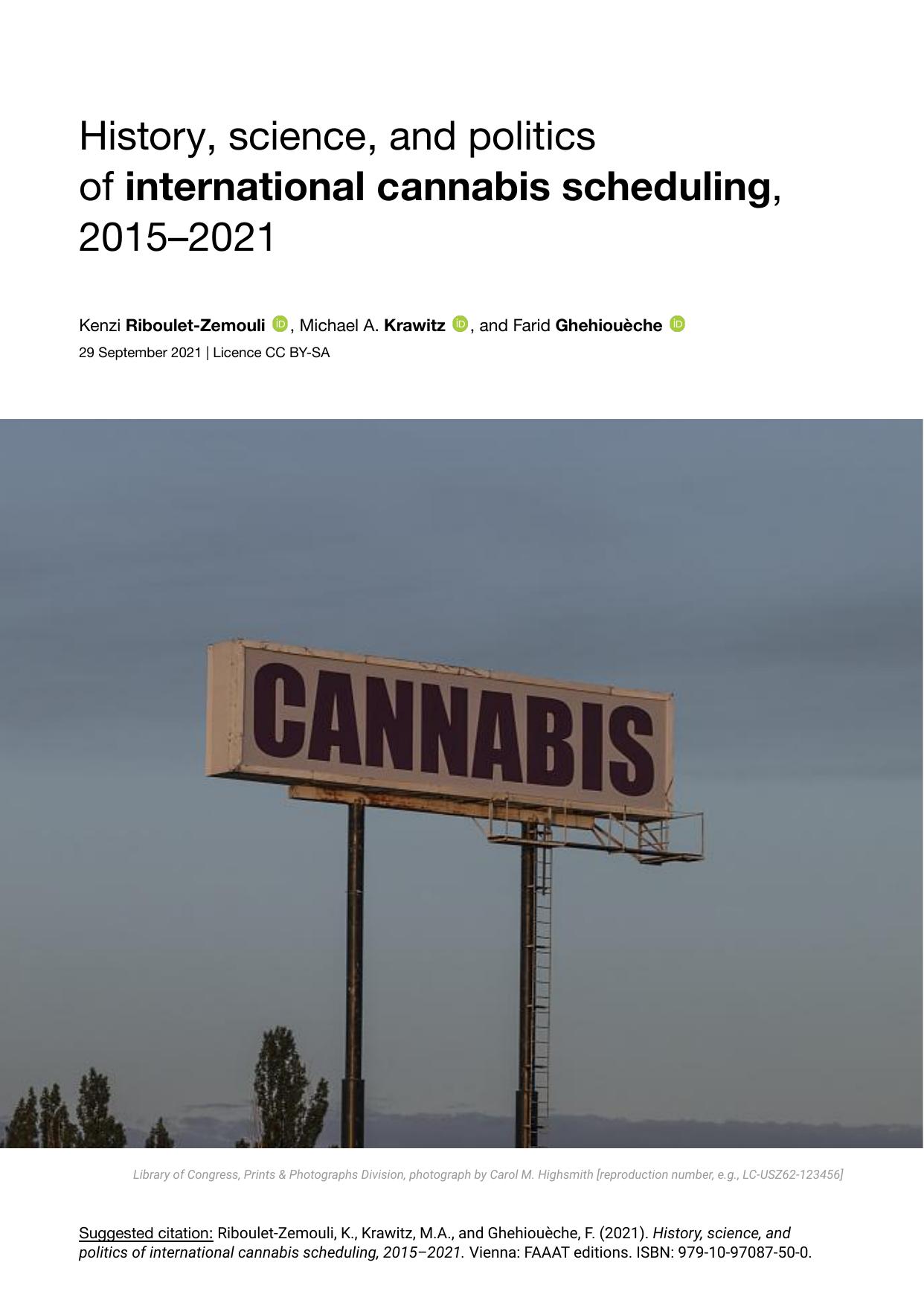
History, science, and politics of international cannabis scheduling, 2015–2021 PDF
40 Pages·2021·2.0949 MB·other
Most books are stored in the elastic cloud where traffic is expensive. For this reason, we have a limit on daily download.
Preview History, science, and politics of international cannabis scheduling, 2015–2021
Description:
On 21 April 2021, the herbal medicines “cannabis” and “cannabis resin” definitively ceased to appear in Schedule IV of the 1961 Single Convention on narcotic drugs (C61), where they had been listed since the entry into force of that treaty in 1964. The process to scientifically review and reschedule Cannabis-related controlled drugs had been launched by the World Health Organization (WHO) on 2 December 2016 and went through a number of hindrances until it finally got submitted to a unique voting process on 2 December 2020 at the United Nations Commission on narcotic drugs (CND). This report reviews the scientific assessments of Cannabis-related controlled drugs and cannabidiol (CBD) by the WHO’s Expert Committee on Drug Dependence (ECDD) and subsequent political discussions at CND that culminated with the 2 December 2020 vote, changing the scheduling of “cannabis” and “cannabis resin” under the C61. A digest of the four years of proceedings (2015-2021) is presented, showcasing elements that provide an understanding about the length and complexity of the processes involved. The report introduces previously-unpublished minutes, complements of information, details on stakeholders and their role, and highlights a number of bureaucratic and diplomatic issues; it compares the efforts undertaken by WHO and CND in terms of method, transparency, and involvement (or not) of interested parties, beyond governments.
Suggested citation: Riboulet-Zemouli, K., Krawitz, M. A., and Ghehiouèche, F. (2021). History, science, and politics of international cannabis scheduling, 2015–2021. Vienna: FAAAT editions. ISBN: 979-10-97087-50-0
See more
The list of books you might like
Most books are stored in the elastic cloud where traffic is expensive. For this reason, we have a limit on daily download.
